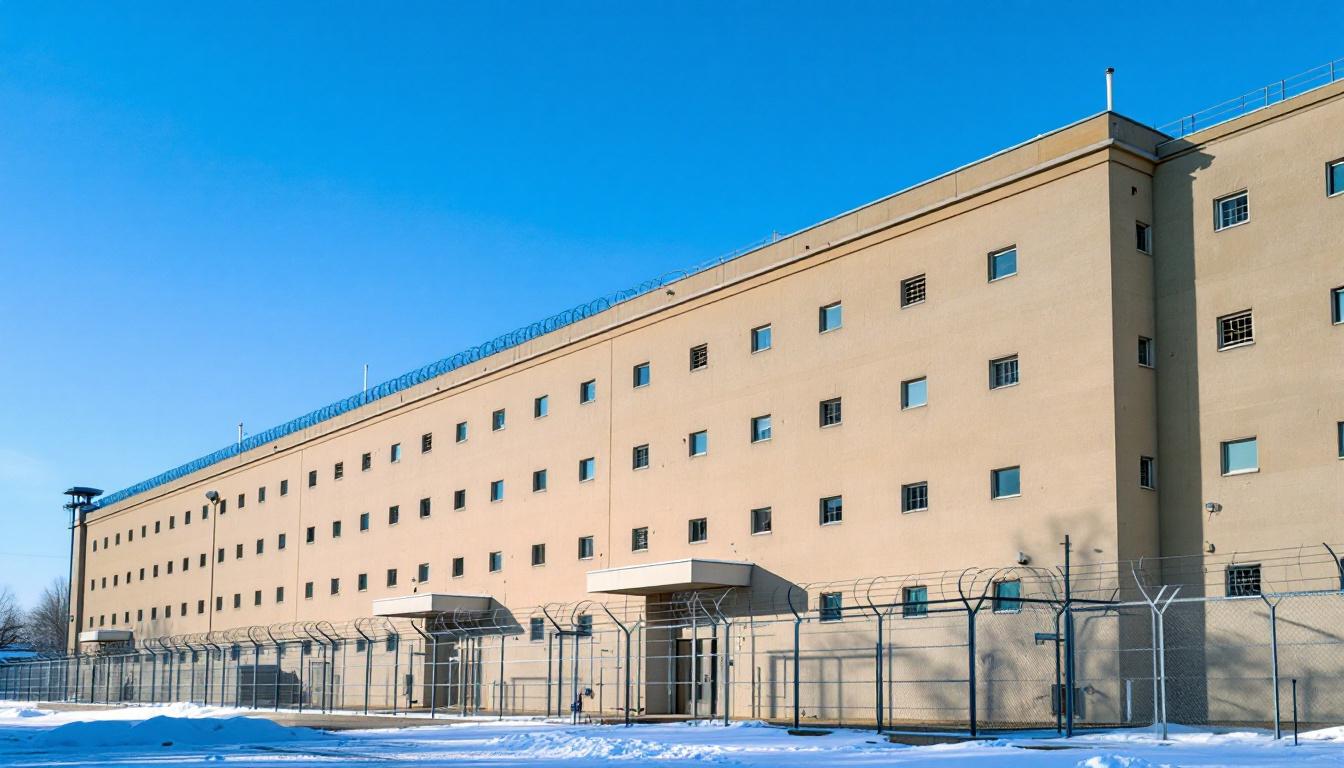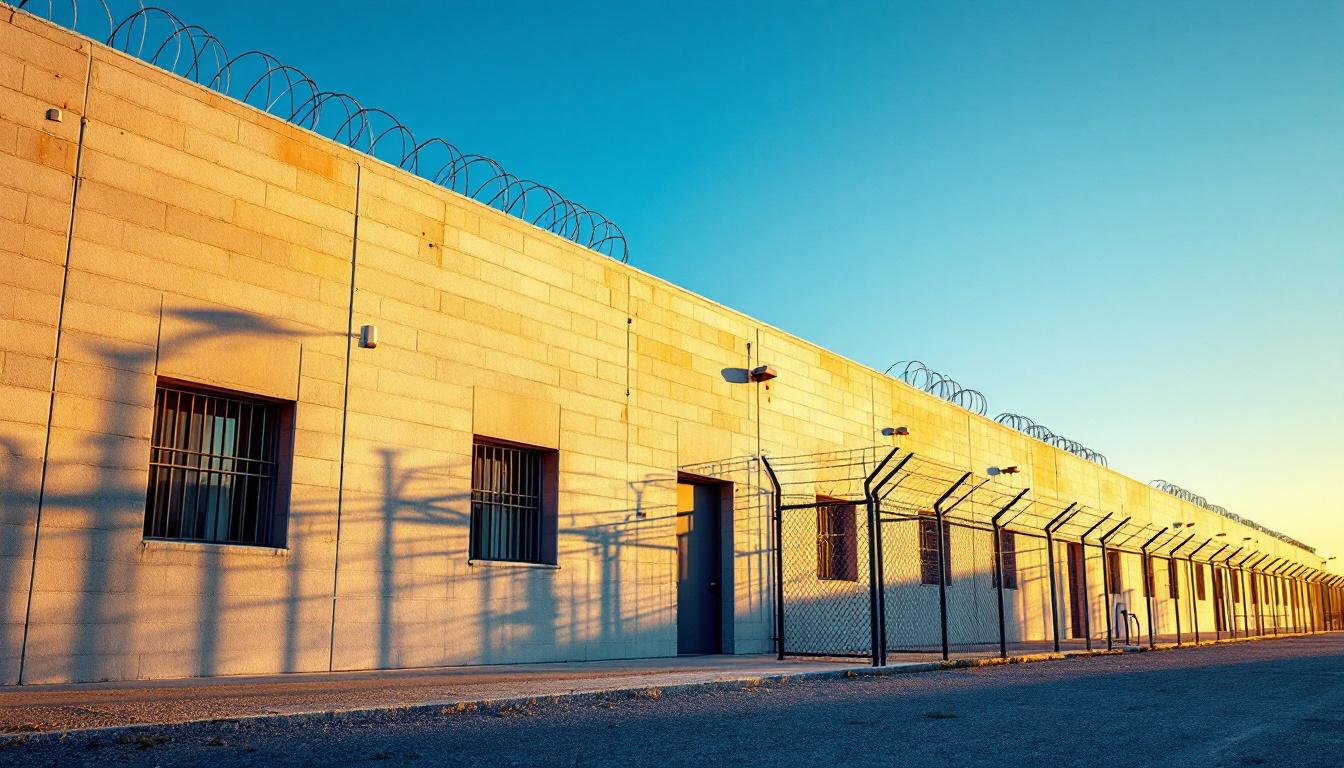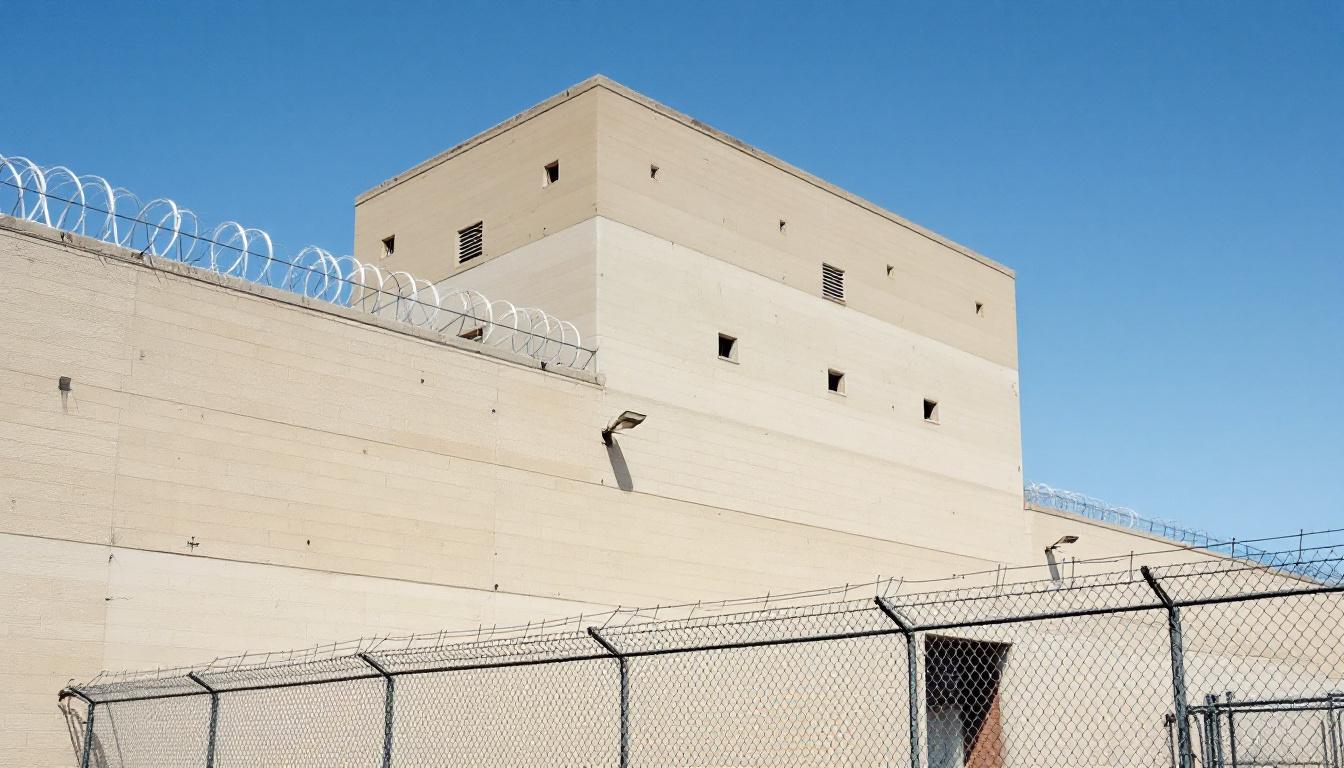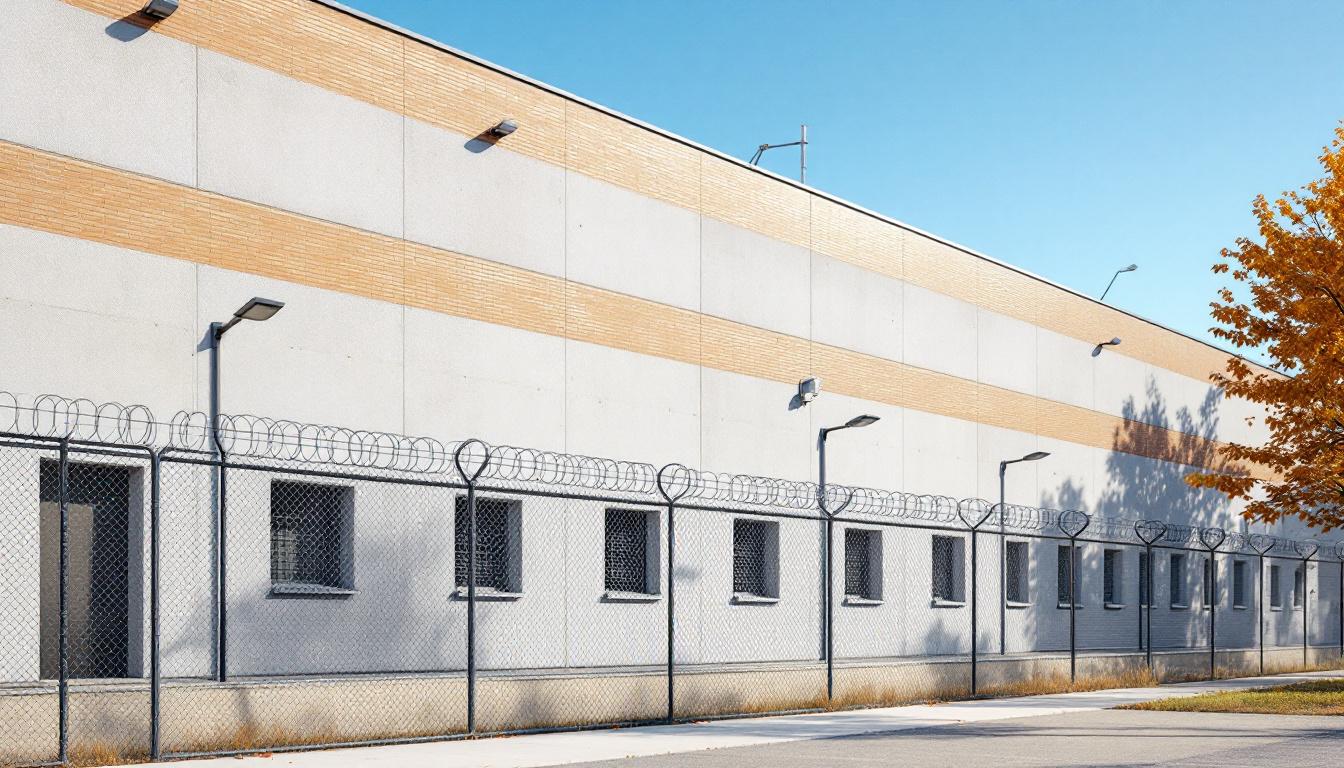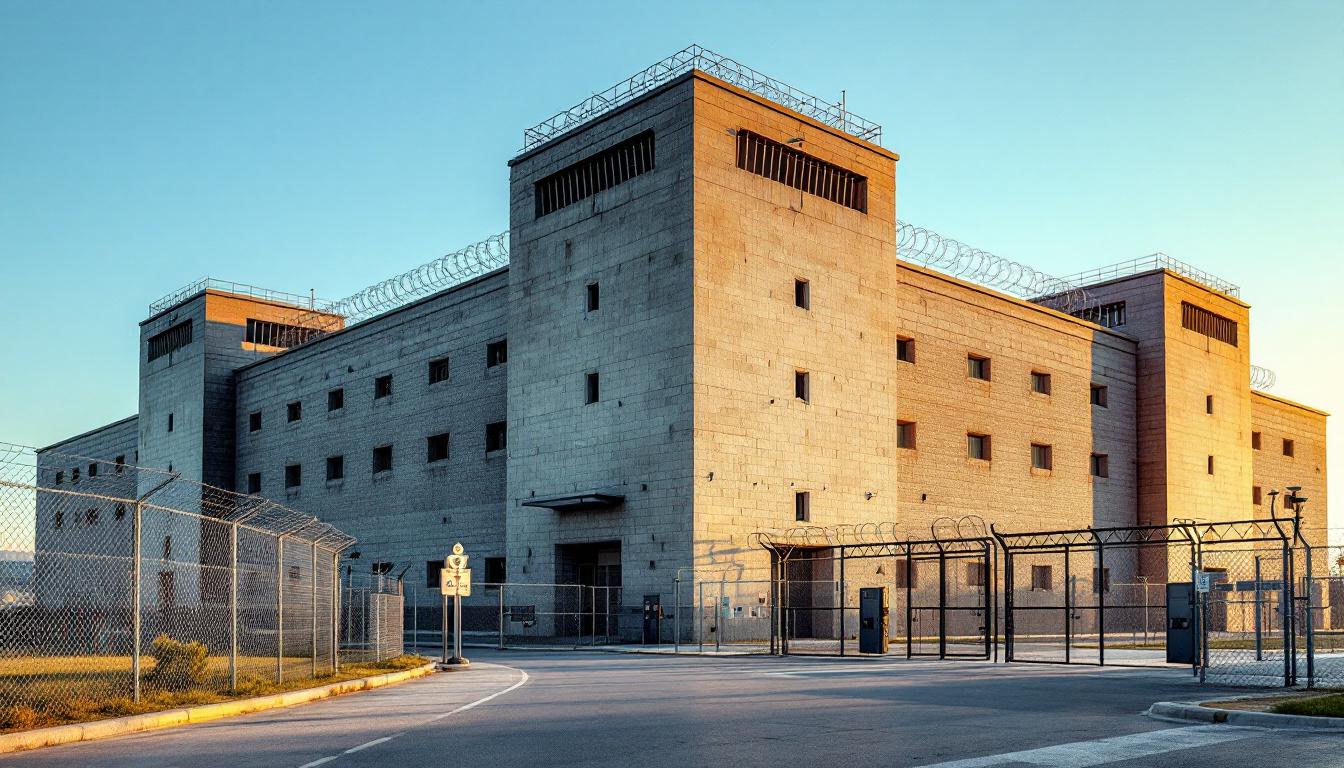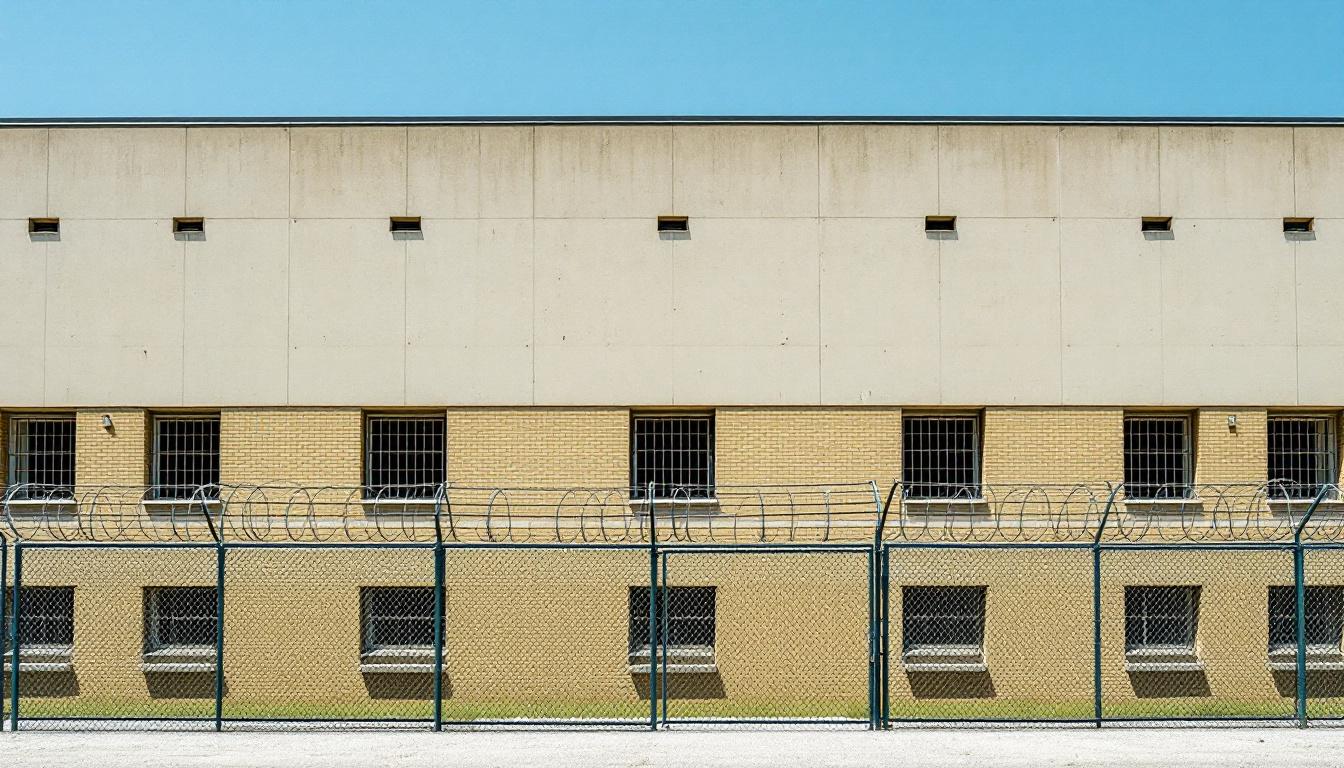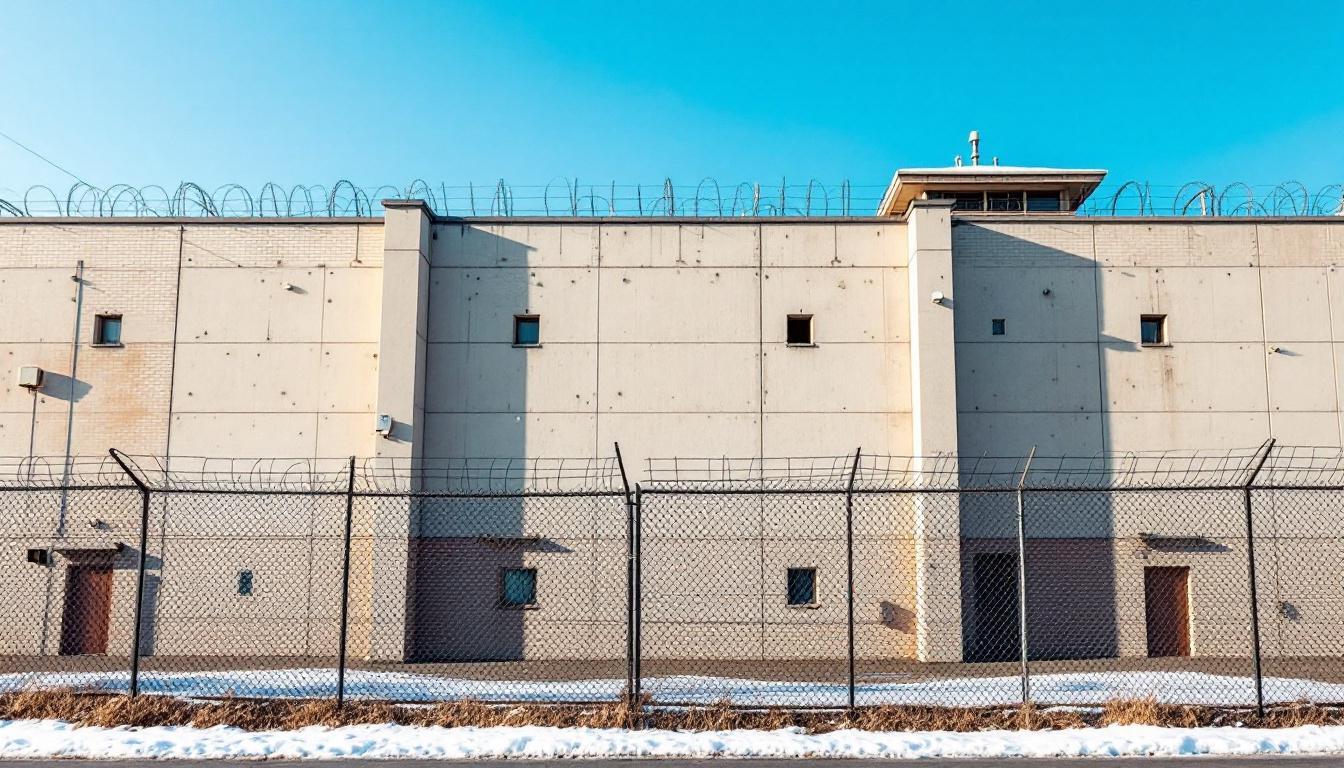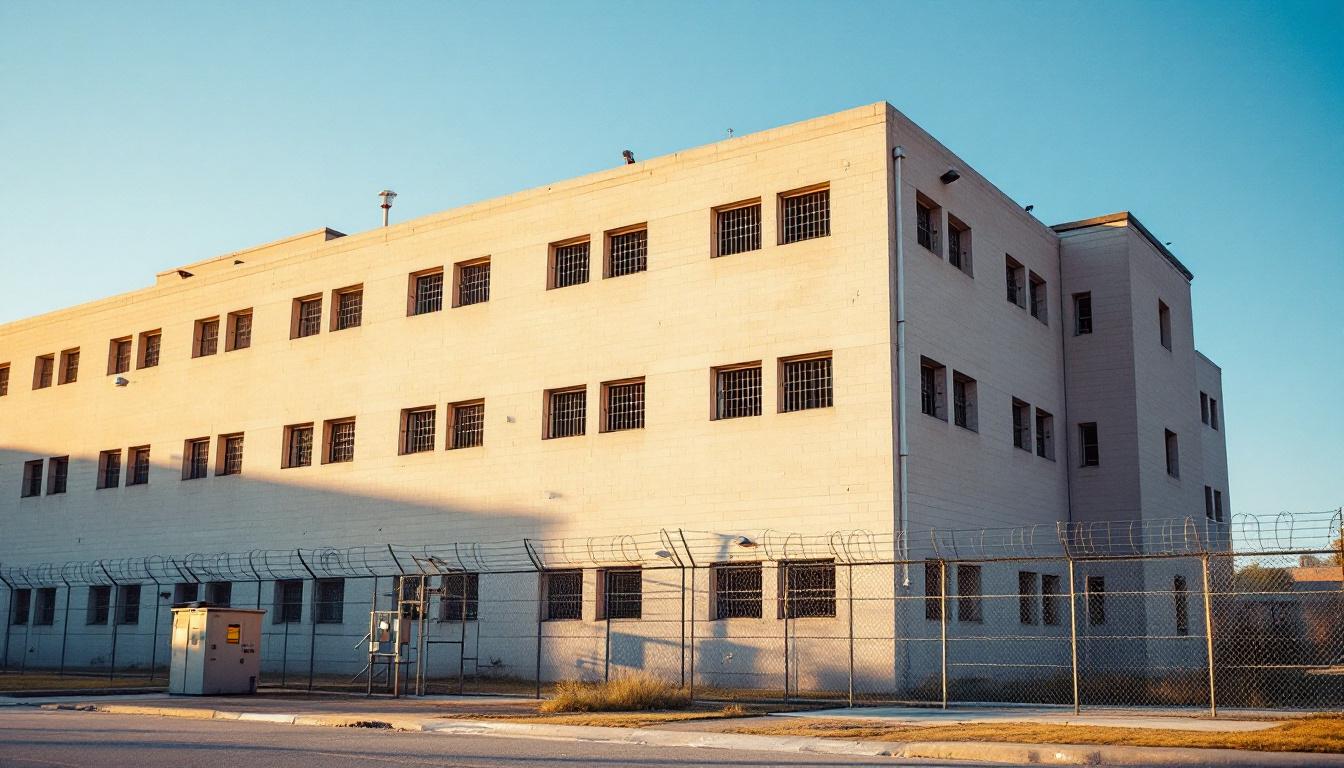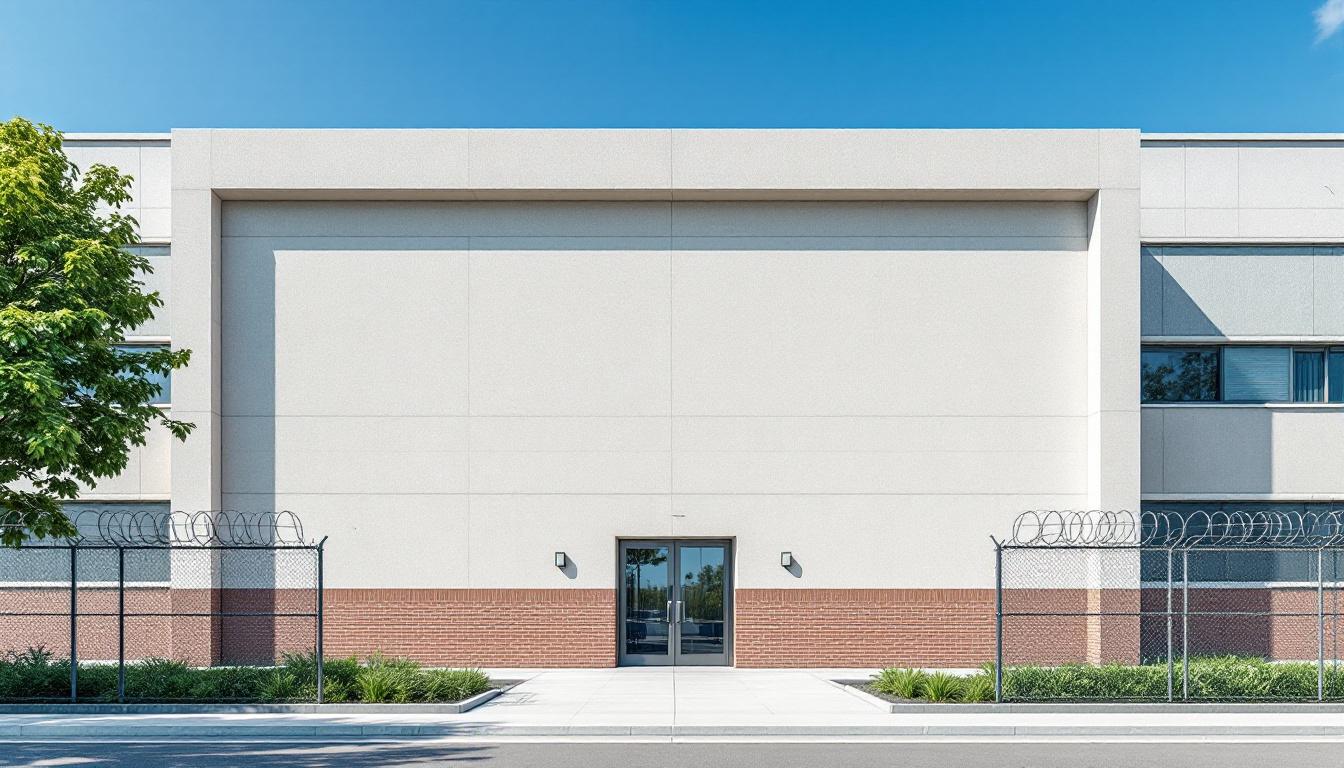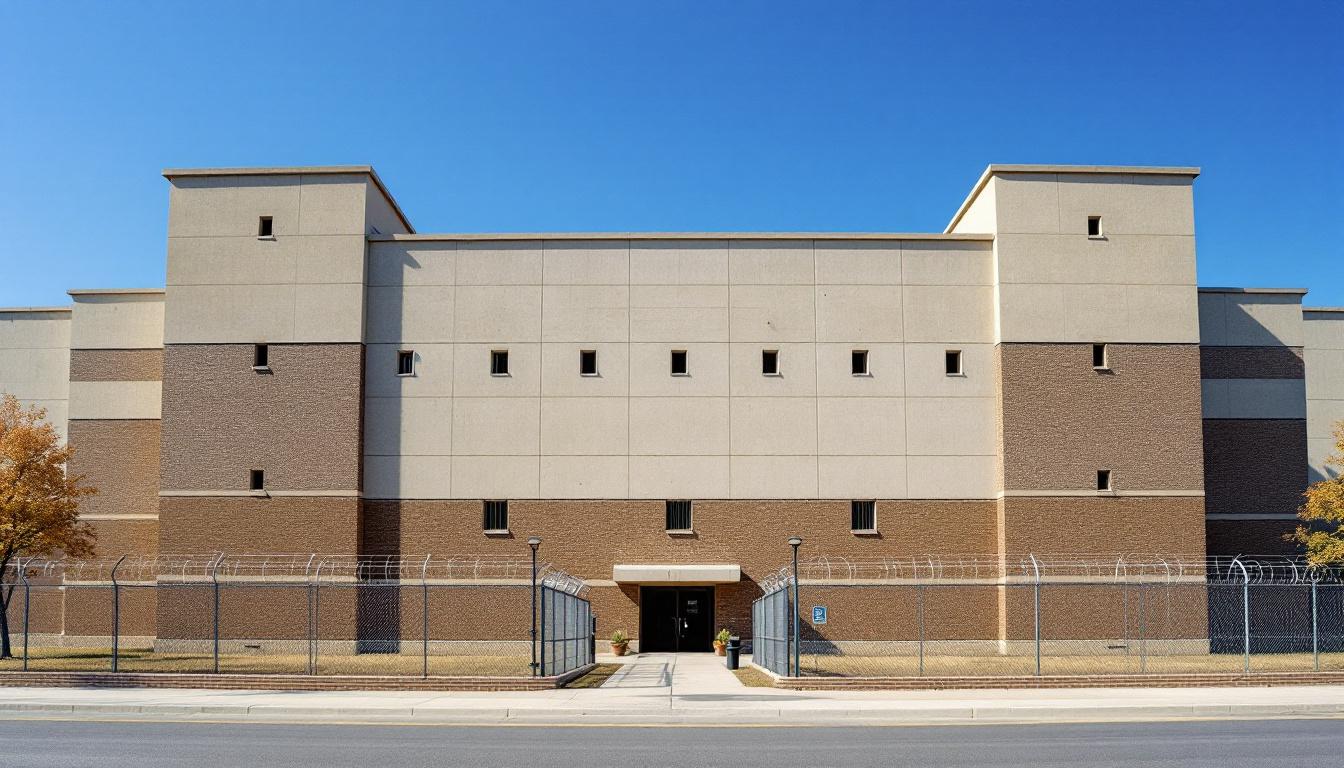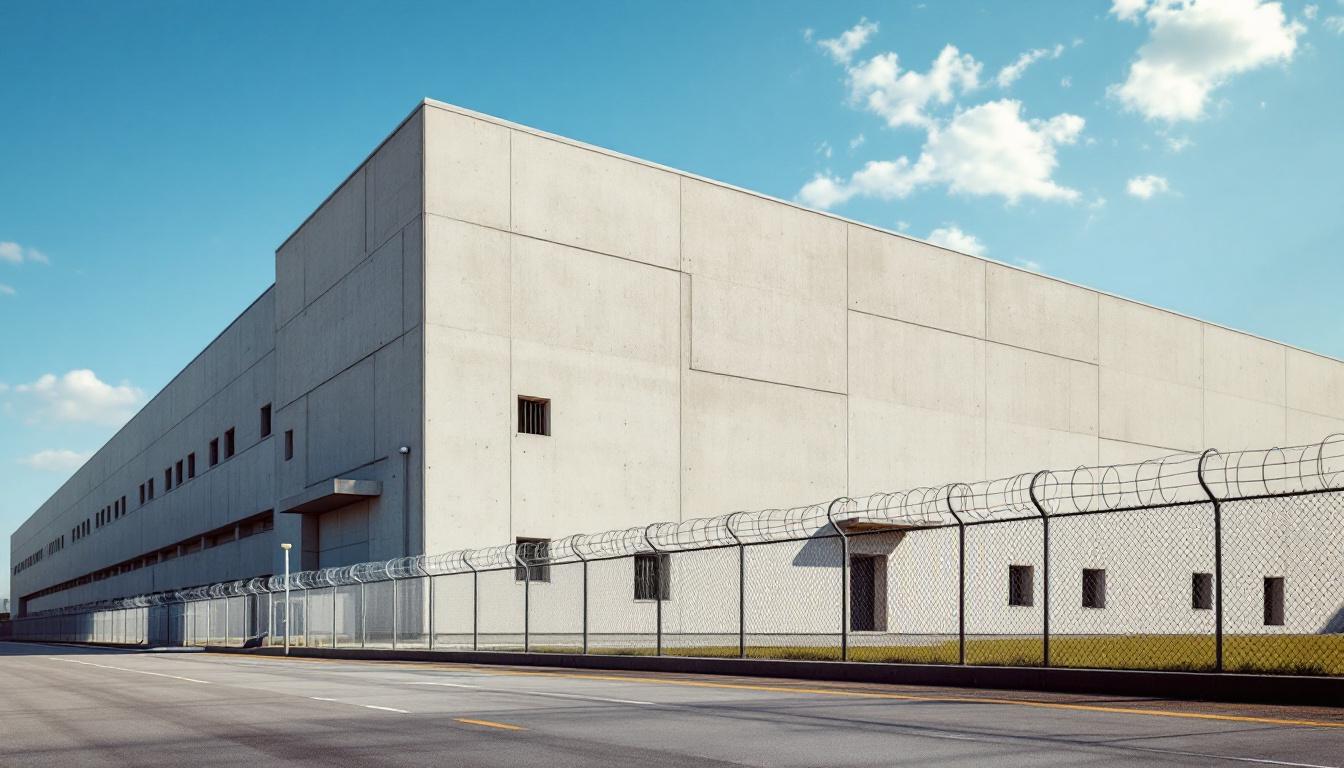
Quick Navigation
How to contact an inmate at Smith Transitional Center
This comprehensive guide will walk you through how to connect with an inmate at Smith Transitional Center. Follow the steps below to find an inmate and send letters and photos:
- Search for the inmate using our search tool below
- Create your account or log in to Penmate
- Write your message (up to 6,000 characters)
- Send instantly - inmates receive printed copies daily
Find an Inmate
Search for an inmate to start communicating today
Tip: You can search by first name, last name, or inmate ID number
To contact a person at Smith Transitional Center start by searching for the person on the facility website. Perform a search by following these steps:
- Step 1: Enter their first name and last name into the search form and click "Search"
- Step 2: Locate their inmate record
- Step 3: Write down their Inmate ID and any housing information provided
Important! Be sure to enter the person's full name. Nicknames should not be used.
How to Send Messages to Inmates

You can use your phone or computer to send emails, letters, and photos to an inmate. Messages are sent electronically to inmate tablets or kiosks at the facility. If you would like to send a message, start by searching for an inmate at Smith Transitional Center.
Sending Photos and Postcards

A great way to send love and support to a loved one at Smith Transitional Center is to send photos and postcards. It only takes a few minutes to send photos from your phone and it makes a huge difference. You can also mail postcards with words of support and inspiration, or design your own postcard for special moments like birthdays and holidays.
Important! Be sure not to send any explicit photos or they may not be approved by the facility. You can also use a photo printing app like Penmate to make sure your photos are printed at the correct size (4x6 or 3x5) and are mailed according to the rules and regulations of Smith Transitional Center.
Frequently asked questions about Smith Transitional Center
-
How long does it take to deliver a message?
If you're sending an email message your letter is usually delivered within 24-48 hours. For messages sent via mail you should expect delivery within 3-7 days. All messages will need be approved by Smith Transitional Center.
-
How much does it cost to send a message to Smith Transitional Center?
You can send a message free using your phone or mail a message via USPS for the price of a $0.60 stamp and envelope. You can also purchase credits or e-stamps from services starting at $1.99.
-
What services can I use to contact an inmate at Smith Transitional Center?
Penmate
You can use Penmate to send letters and photos to an inmate from your phone. It's an easy way to stay in touch during your loved one's incarceration. Use the inmate locator to find an inmate's location and contact information, then you can send messages within a few minutes.
Securus messaging
Securus may be another option for communicating with an inmate at Smith Transitional Center. You can create a friends and family account and purchase credits to send messages. All messages will be reviewed and must be approved by the facility.
JPay
Some county jails and state prisons may support sending messages with JPay. You must register an account with the system, find your loved one, and purchase stamps to send messages. For some locations you can also attach photos.
Smart Jail Mail
You may also check if Smart Jail Mail is available at Smith Transitional Center. Smart Jail Mail is operated by Smart Communications and has contracted with some state and county jails. After purchasing credits, your messages and photos are sent to the facility, printed out, and then handed out to your loved one.
-
What is the mailing address of Smith Transitional Center?
Mailing address:
Smith Transitional Center
8631 US-301
Claxton, GA 30417
Phone: (912) 739-1911 -
What are the visiting hours at Smith Transitional Center?
Visiting hours at Smith Transitional Center vary by housing unit and security level. Generally, visits are scheduled on weekends and holidays, with some facilities offering weekday visits. Contact the facility directly at (912) 739-1911 or check their website for the current visiting schedule. Visits typically last 30-60 minutes and must be scheduled in advance.
-
What items are prohibited when sending mail to Smith Transitional Center?
Prohibited items typically include: cash, personal checks, stamps, stickers, glitter, glue, tape, staples, paperclips, polaroid photos, musical or blank greeting cards, hardcover books, magazines with staples, and any items containing metal or electronics. Only send letters on plain white paper with blue or black ink. Photos must be printed on regular photo paper (no Polaroids). Always check with Smith Transitional Center for their specific mail policies.
-
How do I send money to an inmate at Smith Transitional Center?
You can send money to an inmate at Smith Transitional Center through several methods: 1) Online using JPay, Access Corrections, or the facility's approved vendor, 2) Money orders mailed directly to the facility with the inmate's name and ID number, 3) Kiosks located in the facility lobby, or 4) Over the phone using a credit or debit card. Fees vary by method, typically ranging from $2.95 to $11.95 per transaction.
-
Can I schedule a video visit with an inmate at Smith Transitional Center?
Many facilities now offer video visitation as an alternative to in-person visits. At Smith Transitional Center, video visits may be available through services like Penmate, Securus Video Connect, GTL, or ICSolutions. Video visits typically cost $10-20 for 20-30 minutes and must be scheduled in advance. You'll need a computer or smartphone with a camera and reliable internet connection. Contact the facility for their specific video visitation policies and approved vendors.
-
What identification do I need to visit an inmate at Smith Transitional Center?
All visitors must present valid government-issued photo identification such as a driver's license, state ID, passport, or military ID. Minors must be accompanied by a parent or legal guardian who can provide the minor's birth certificate. Some facilities require visitors to be on the inmate's approved visitation list, which may require a background check. Contact Smith Transitional Center for specific ID requirements and visitor approval procedures.
-
How can I find out an inmate's release date?
To find an inmate's release date at Smith Transitional Center, you can: 1) Use the online inmate search tool if available, 2) Call the facility's records department, 3) Contact the inmate's case manager or counselor, or 4) Have the inmate provide this information during a call or visit. For privacy reasons, some facilities only release this information to immediate family members.
Facility Overview

About Smith Transitional Center
Operating in Claxton, Georgia, Smith Transitional Center serves as a specialized reintegration facility designed to bridge the gap between incarceration and community reentry. Constructed in 1993 and opened in 2007, this 213-capacity center operates under the mission to protect the community while assisting residents in making successful transitions back into society. The facility provides social and employment skills development within a structured environment, with Smith State Prison serving as the host facility.
The center houses residents in four open dormitories equipped with bunk beds, fostering a community-oriented living arrangement that supports the transition process. A key component of the program involves work release assignments at a local Poultry Processing Plant, providing residents with valuable vocational training and real-world employment experience. This hands-on approach to skill development is complemented by comprehensive programming that includes individual counseling, family violence intervention, reentry preparation, and motivation for change sessions.
Smith Transitional Center's holistic approach to rehabilitation encompasses various support services designed to address multiple aspects of successful reintegration. The facility typically offers religious activities including worship services, Bible study, and pastoral counseling, alongside general recreation and physical health programs. Additional services may include vocational rehabilitation through partnerships with organizations like Easter Seals, Matrix programming, and Detours intervention. Located approximately 13 miles south of Claxton along Highway 301, the center's strategic positioning allows residents to maintain connections with their communities while participating in structured reentry programming.
Programs & Services
Through its comprehensive counseling programs, Smith Transitional Center addresses multiple aspects of resident rehabilitation, including individual counseling, family violence intervention, and specialized programs like Detours, Matrix, and Motivation for Change. The facility's partnership with vocational rehabilitation services and Easter Seals demonstrates its commitment to preparing residents for successful community reintegration. These evidence-based programs work alongside re-entry counseling to address underlying issues that may have contributed to criminal behavior while building essential life skills.
The center's vocational training focuses primarily on poultry processing, with residents participating in on-the-job training and work release programs at a local processing plant. This hands-on approach provides residents with marketable skills and work experience that directly translates to employment opportunities upon release. The facility may also offer additional job readiness training, resume preparation, and interview skills development to complement the practical work experience gained through the poultry processing program.
Beyond vocational and counseling services, Smith Transitional Center typically provides recreational activities to support physical and mental wellness, along with various religious programs including worship services, Bible study, and pastoral counseling for those who choose to participate. The facility may offer additional support services such as substance abuse education, financial literacy training, and family reunification programs to address the diverse needs of its transitional population. These comprehensive services work together within the structured dormitory environment to help residents develop the social and employment skills necessary for successful community reintegration.
Daily Life & Visitation

Residents at Smith Transitional Center wake each morning in one of four open dormitories, where bunk beds house the facility's 213 individuals working toward successful reintegration into society. The structured environment begins early, as most residents prepare for their assignments at the Poultry Processing Plant through the work release program, which serves as both employment training and a pathway to developing essential job skills.
The work release program typically dominates weekday schedules, with residents gaining hands-on experience in poultry processing while earning wages and learning workplace responsibility. When not at their job assignments, residents may participate in various counseling programs including individual sessions, family violence intervention, re-entry preparation, and substance abuse programs like Matrix and Detours. The facility also offers vocational rehabilitation services in partnership with organizations that help residents develop marketable skills for their transition back into the community.
Evenings and weekends often include recreational activities and religious services, with various worship options, Bible study sessions, and pastoral counseling available to those who wish to participate. Family connections remain important during this transitional period, and the facility typically maintains visiting schedules that allow residents to strengthen relationships with loved ones. Located approximately 13 miles south of Claxton on Highway 301, the center's mission focuses on providing social and employment skills within a structured setting, helping residents prepare for successful reintegration while maintaining community safety.
Ready to Connect?
Start communicating with your loved one today
Search for an Inmate
